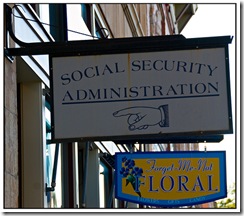
It is for this reason that much consternation has been brought about in recent years with regard to the question of the Social Security system’s running out of money. You see, for quite a while the Social Security system has had a surplus over current expenses, with the surplus amounts being placed in the trust fund. In 2020 it is expected that current benefits being paid out will become greater than the payroll taxes are bringing in, so the difference will come from the trust fund.
No Pile of Money
The point is – there’s not a pile of money sitting somewhere with your name on it, although your “contributions” are tracked through the years, as a matter of adminis-trivia. There is no guarantee at any point in time that the money you’ve put into the system will ever be returned to you, but then again you may receive far more in benefits than you paid in.
For example, if you were single with no dependents and worked all your life paying in to the Social Security system but died just prior to starting to receive your Social Security retirement benefit, it would all be for naught (for your benefit). There’s no residual that goes to your estate.
On the other hand, to consider an extreme example at the other end of the spectrum: Ida May Fuller, the individual who received the first ever Social Security benefit check in January of 1940, had worked for only 3 years under the Social Security system, paying in a total of $22.54 in Social Security taxes during that time. Mrs. Fuller lived to age 100, and she received benefits in the amount of $22,888.92 over the course of the 35 years.